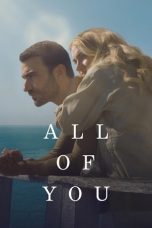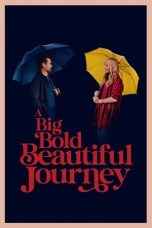The Turin Horse (2011) Movie Review: Béla Tarr’s Haunting Meditation on Existence
The Turin Horse, directed by Béla Tarr and released in 2011, is a profound and contemplative film that stands as a testament to Tarr’s distinctive vision and artistic mastery. Known for its slow pacing, stark visuals, and philosophical depth, the film is a meditative exploration of human existence, suffering, and the inexorable passage of time.
Plot Overview
The film is inspired by an anecdote about Friedrich Nietzsche’s mental breakdown in Turin, Italy, but it does not directly recount this event. Instead, The Turin Horse presents a fictional narrative focusing on a horse and its owner, a farmer, living in a desolate, rural setting. The story unfolds over six days, each marked by a repetitive and increasingly bleak routine.
As the farmer and his daughter struggle with the harsh conditions of their life, the film delves into themes of existential despair and the meaninglessness of human endeavors. Their daily existence becomes a monotonous and grueling cycle, reflecting a profound sense of isolation and futility.
Béla Tarr’s Direction and Style
Béla Tarr’s direction in The Turin Horse is characterized by its deliberate pacing and minimalist approach. The film is known for its long, unbroken takes and meditative sequences that emphasize the weight of existence and the passage of time. Tarr’s use of static, wide-angle shots creates a stark and immersive atmosphere, allowing the audience to experience the characters’ sense of entrapment and desolation.
The film’s slow pacing and repetitive scenes are designed to evoke a sense of the monotonous and unrelenting nature of the characters’ lives. Tarr’s meticulous attention to detail and his ability to create a profound emotional impact through minimalism and repetition make the film a powerful and thought-provoking experience.
Cinematography and Visuals
The cinematography, handled by Fred Kelemen, is a crucial element in conveying the film’s atmosphere and themes. The use of black-and-white film stock enhances the stark and somber tone of the narrative, while the composition of the shots emphasizes the isolation and bleakness of the characters’ environment.
The film’s visual style is characterized by long takes and unadorned imagery, which contribute to its contemplative and immersive quality. The minimalistic approach to visuals reflects the film’s exploration of existential themes and reinforces the sense of desolation and futility.
Themes and Interpretation
The Turin Horse explores themes of existentialism, suffering, and the meaning of human existence. The film’s portrayal of the characters’ repetitive and arduous daily life serves as a metaphor for the broader human condition and the search for meaning in an indifferent universe.
The narrative’s focus on the mundane and the repetitive underscores the film’s philosophical inquiry into the nature of existence. The characters’ struggle and isolation reflect a deep sense of despair and resignation, prompting viewers to consider their own perceptions of meaning and purpose.
Reception and Legacy
The film was well-received by critics and is considered one of Béla Tarr’s most significant works. It won the Silver Bear at the Berlin International Film Festival and has been praised for its innovative approach to storytelling and its profound thematic depth. The Turin Horse is regarded as a masterful example of contemplative cinema and continues to be studied and discussed for its artistic and philosophical contributions.
Streaming and Rental/Purchase Options
For those in the United States interested in watching The Turin Horse, several options are available:
- Streaming Services: The film is available for streaming on platforms like The Criterion Channel, which may require a subscription.
- Rental/Purchase: The film can also be rented or purchased on platforms such as Amazon Video, iTunes, and Google Play. Rental prices typically range from $2.99 to $3.99, while purchase prices range from $9.99 to $14.99, depending on the platform and video quality.
Conclusion
The Turin Horse is a haunting and thought-provoking film that exemplifies Béla Tarr’s distinctive cinematic style and philosophical depth. With its slow pacing, minimalist visuals, and profound exploration of existential themes, the film offers a unique and immersive experience that challenges conventional storytelling and invites deep reflection on the nature of human existence. For those interested in contemplative and artful cinema, The Turin Horse stands as a significant and impactful work that continues to resonate with audiences and critics alike.
















